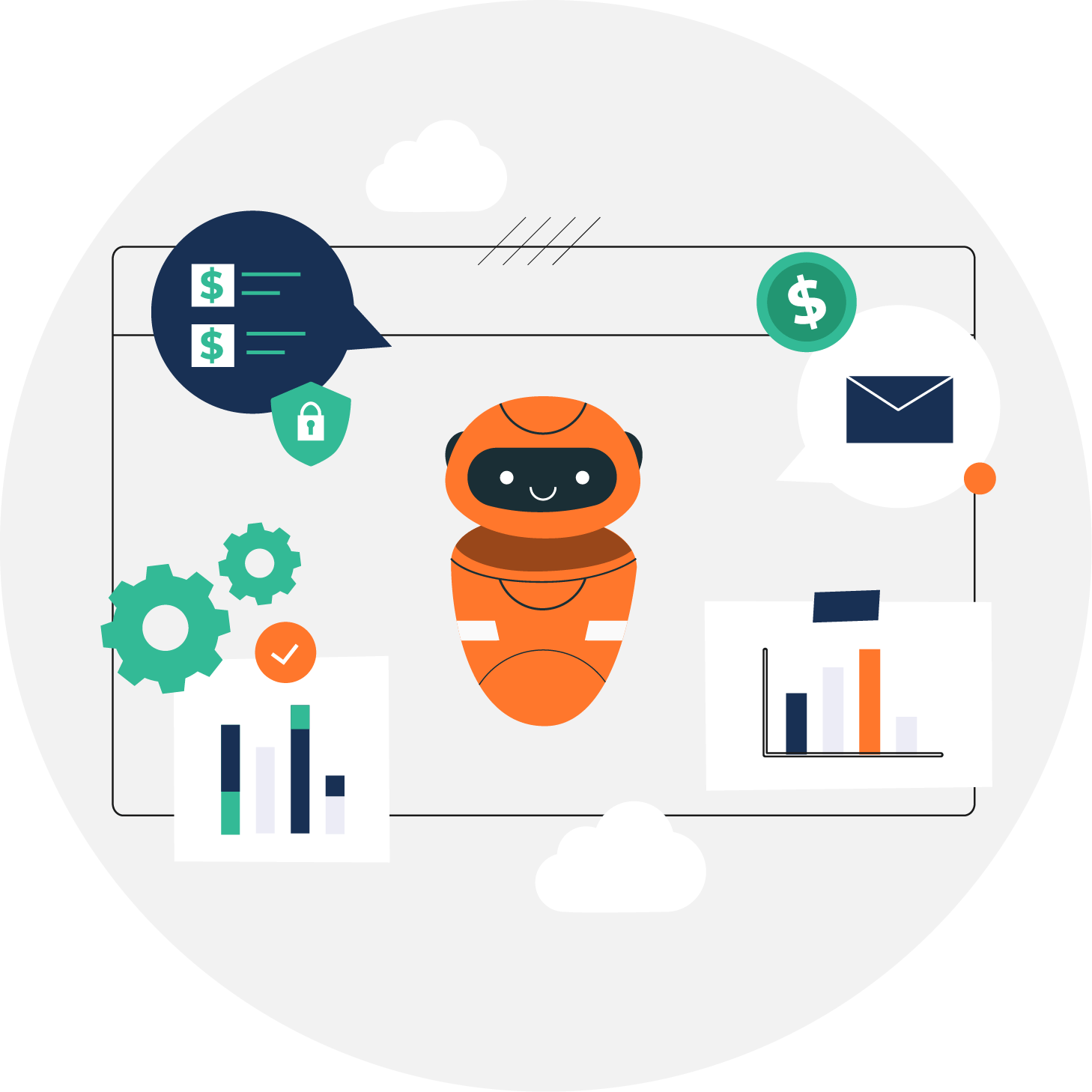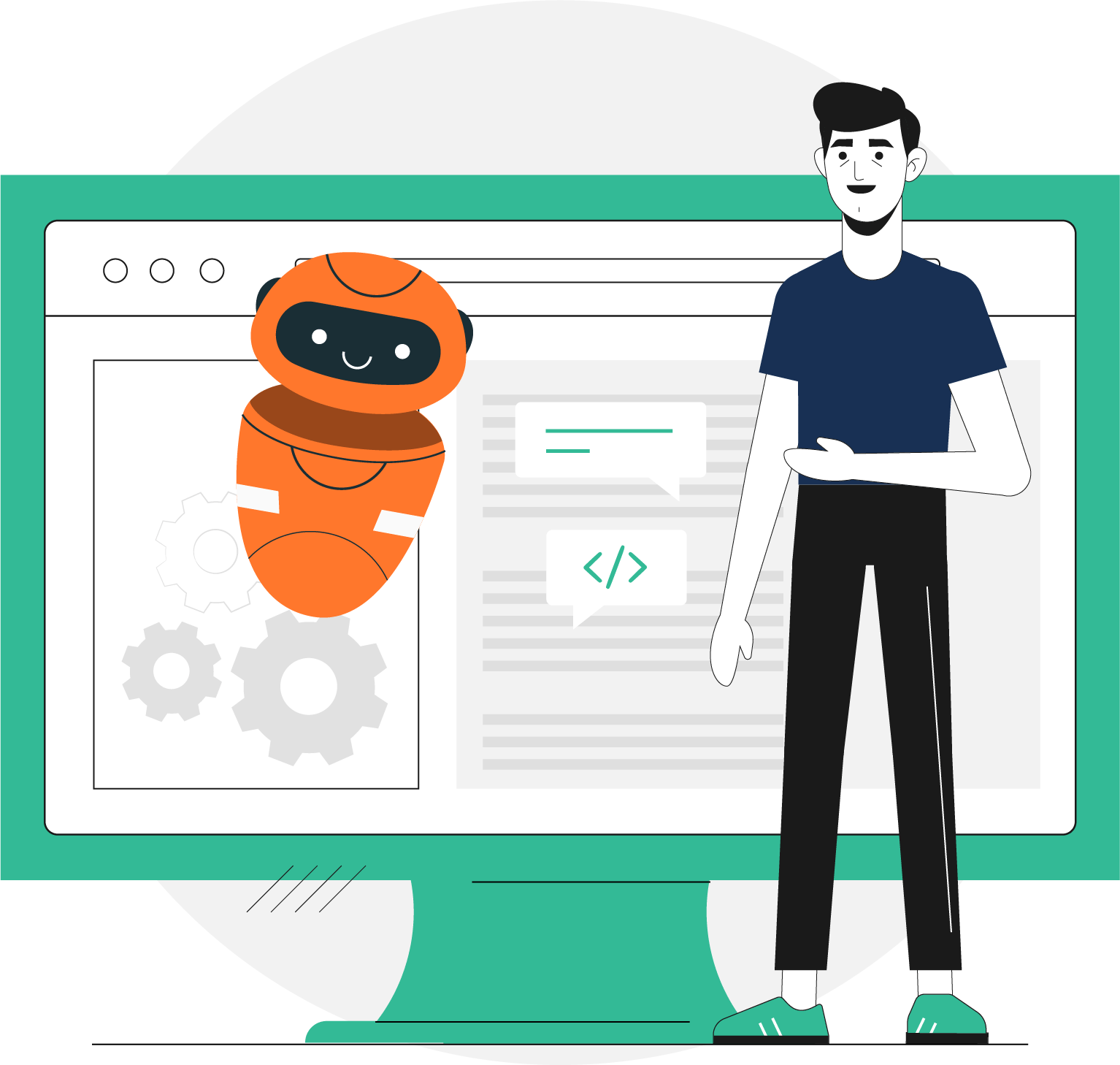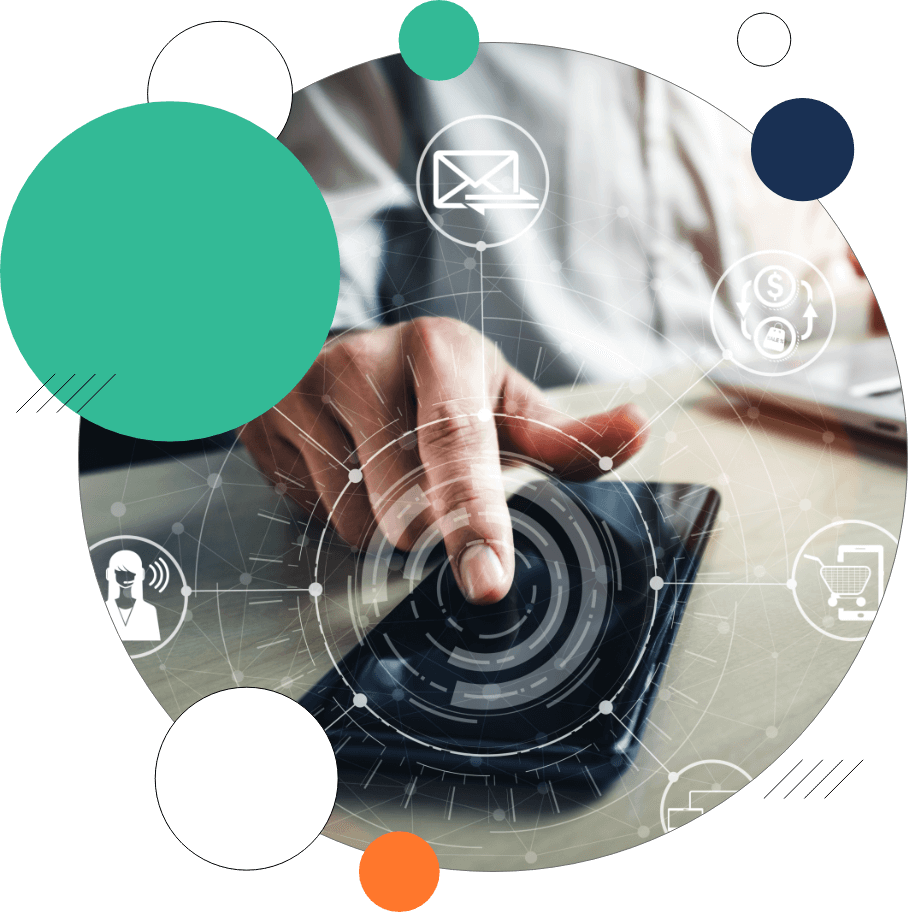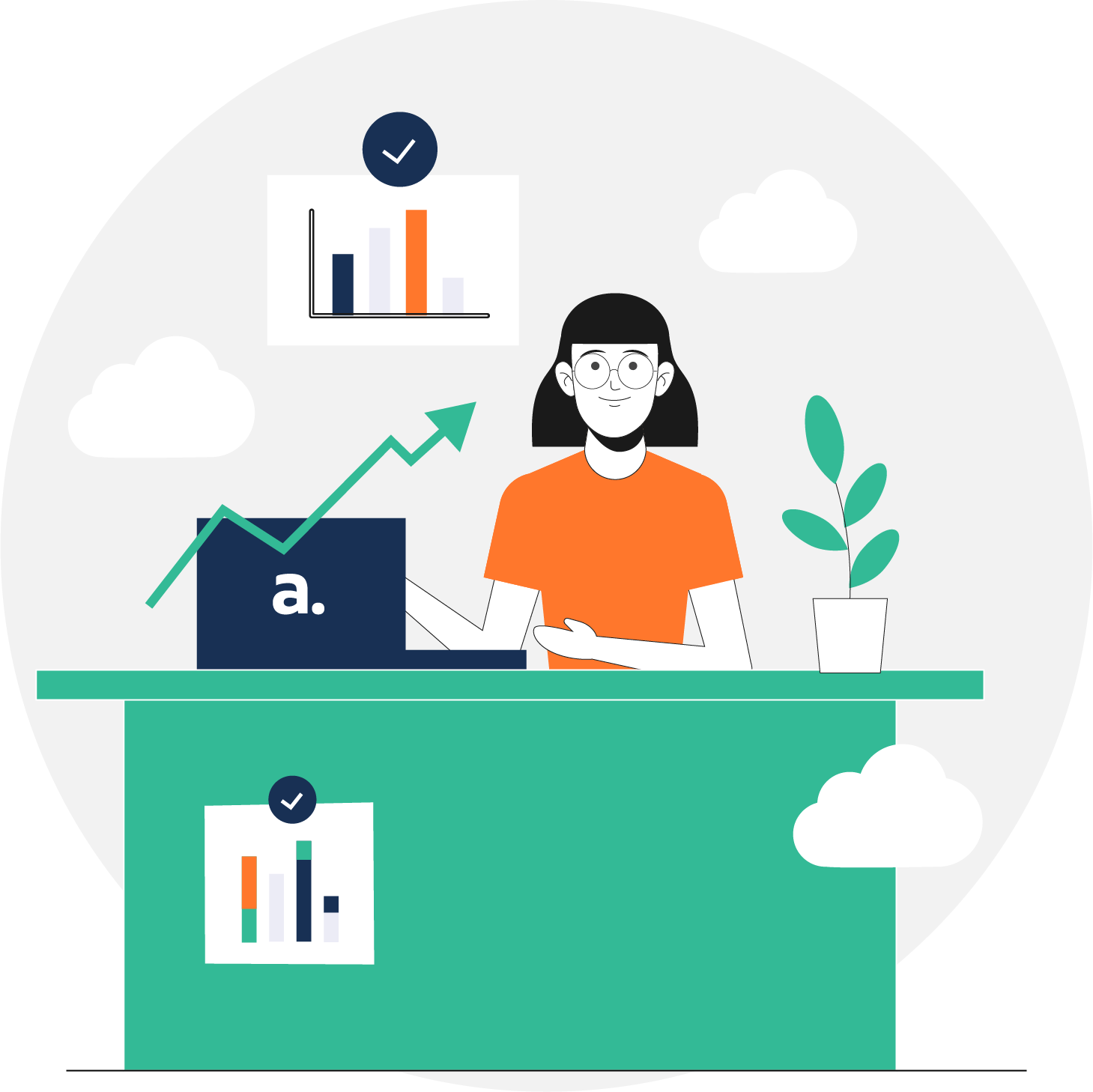
Why Artificial Intelligence?
Artificial intelligence leverages the power of machines to solve complex problems beyond the reach of the human mind.
AI is the combination of algorithms stated in order to create machines that showcase the same capacities as human beings.
It requires a specific programming language that enables the ability to reason, plan, solve problems, think abstractly, understand complex ideas, learn quickly and learn from experience.
AI is already present in our everyday life: Facial detection in mobile devices, virtual voice assistants and chatbots.

What does Artificial Intelligence Include?
- Machine learning: Techniques that allow computers to learn for the development of applications that can generalize behaviors.
- Recommendation systems: Techniques to predict and prepare assessments and users’ preferences.
- Image recognition: Techniques that transform iconic data into information the computer can recognize.
- Signal analysis: Techniques that obtain information from data (audio and images).
- Emotion recognition: Techniques that make it possible to recognize six different human emotions, regardless of the person’s culture or language.
- Big data: Capture, management, analysis and inference of sets of data that cannot be processed through traditional technologies and tools.
Types of Artificial Intelligence
Systems that think like humans
They automate activities such as decision-making, problem-solving and learning.
Systems that act like humans
Computers that perform tasks in a way that is similar to what humans do.
Systems that think rationally
They try to emulate the rational, logical thinking of humans.
Systems that act rationally
They try to imitate human behavior in a rational way, like intelligent agents.
Artificial Intelligence for All Types of Industry
- Virtual personal assistants (bot): Interactive chatbots that can help answer frequent questions.
- Finances: It helps financial institutions detect frauds, predict market patterns and advice on operations.
- Commercial: It allows making sales forecasts, and it makes suggestions for the choice of products depending on the customer.
- Education: It is possible to suggest new courses or create personalized offers to optimize learning.
- Logistics and transport: It is useful to optimize traffic, preventing traffic jams or delays in circulation.
- Health: Data gathering generates patterns that help identify genetic factors that are sensitive for the development of a disease.

#BusinessPartner of IBM
We have over 40 years’ experience developing software and implementing business solutions in the region.
We co-innovate applying digital solutions with the biggest impact on businesses.
We are #BusinessPartner of IBM, which allows us to commercialize the IBM DBA, IBM RPA and IBM Watson products suite.
We provide consulting, custom software development, testing and application maintenance services for different industries, and we offer Java and .Net developments.
What does Gartner Say about AI?
The advisory company Gartner predicts that 85% of interactions with customers will be managed through AI, and it is estimated that, in all, the AI market may account for US$ 127 Billion by 2025.

